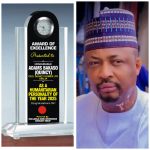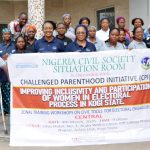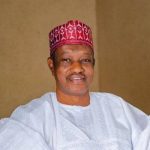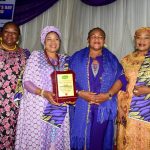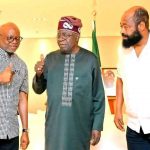Nigeria at a Crossroads: Political Decampee, New Parties and the Next Two Years
By Dr. Aiyeku Olufemi Samuel
Nigeria’s political landscape is increasingly fractured. Decampee migrate from party to party; new formations spring up; mergers occur across interest groups. But are these shifts about ideology, or simply power?
Why are politicians decamping?
* Are they pursuing principle—or just chasing influence?
* A strong indicator: most defections occur just before elections—few bring new ideas.
“Decampees decamp not for Abuja—they decamp from ideas. No new party will heal old wounds unless its foundation is built on values, not cartels.”
~ Dr. Aiyeku Olufemi Samuel
What has all this achieved?
* Little policy continuity.
* Voters increasingly withhold trust, seeing politicians self-serving over public-serving.
Is forming a new party the solution?
* With over 90 registered parties, Nigeria’s political space is crowded
* Yet none have truly disrupted the two-party dominance or ceded corruption and tribal divides.
* The real test: does the party speak to Nigerians’ daily needs, such as jobs, healthcare, and security?
What do Nigerians expect in President Tinubu’s remaining two years?
* Continued reform in subsidy removal, tax policy, and currency unification
* Better living conditions: inflation remains high at 23–24%, food is still expensive
* Security sector reform—not just rhetoric, but enduring stability
What is the feasible roadmap forward?
Macroeconomic machinery:
* Strengthen agriculture with input subsidies and market reforms to drive down food inflation
* Expand tax-to-GDP from 13.5% to 18%, dedicate to infrastructure & healthcare
* Mobilize FDI in energy and ICT, using digital economy strategies guided by World Bank loan and RTC
Microeconomic machinery:
* Accelerate SME support via low-interest finance, incubators, MSME
* Expand student loan and skills schemes to combat youth unemployment
Technocrats must:
* Deliver results, not blame.
* Ensure transparency in policy implementation.
* Enable local governments to own security and social interventions.
In conclusion, Nigeria needs ideological cohesion over individuals’ ambitions.
The next 24 months must see:
* Economic relief for citizens—not just investors, as advocated
* Security and prosperity delivered through coherent macro and micro strategies.
* Political sincerity over opportunism.
Nigeria remains at a crossroads. Electorate choice, technocratic efficiency, and genuine governance will determine if this path leads to redemption or repetition.
Dr. Aiyeku Olufemi Samuel
Co-Founder & Lead Consultant, Global Human Capital & Energy Management Limited
Governance Analyst|
Development Economist|
Policy Consultant| Strategic Development Advocate| Climate Action Enthusiast | Sustainability & Impact Investing Specialist|Girl-child Advocacy| PPP & CRM Specialist /Sales Innovation & Transformational Results-Driven Business Analyst

